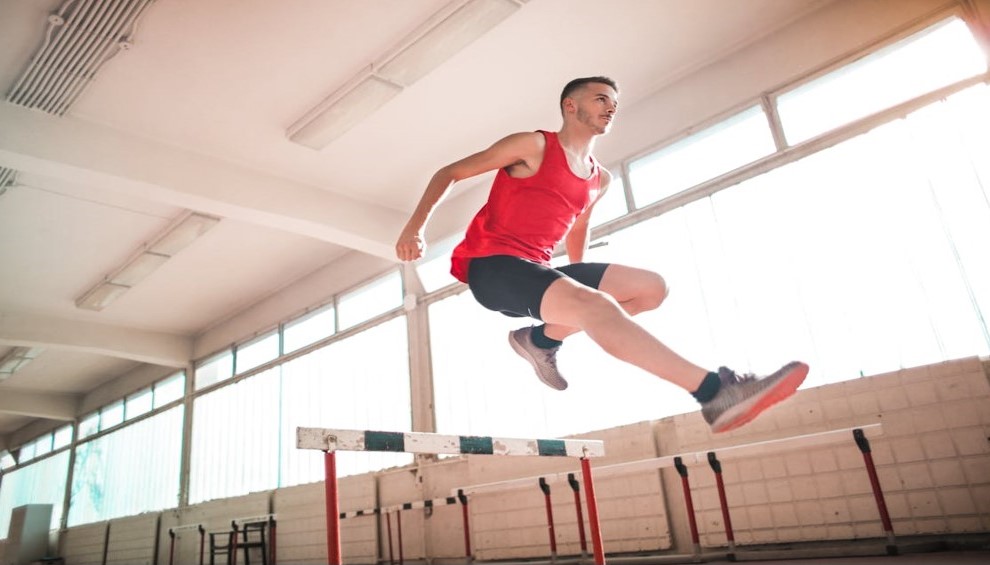Athletes are constantly trying to break new ground in their physical performance and extend their peak years. The science behind an athlete’s peak performance age, therefore, is crucial not only to the athletes themselves but also to the followers of sports actively participating in online betting apps. Genetic makeup, organismal and training factors all affect how long an athlete can stay playing at a high level.
Genetic and Physiological Factors
It cannot be overemphasised that the role genetics plays in determining an athlete’s prime performance age. Muscle composition, bone density and overall physical capability are all under genetic control. For example, athletes who have a higher percentage of fast-twitch muscle fibres tend to excel in explosive sports such as sprinting or weightlifting, usually peaking between the mid-20s to early 30s age group. On the other hand, those with more slow-twitch fibres, appropriate for endurance sports like marathon running or cross-country skiing, may peak somewhat later.
Also crucial are physiological factors that include how well one recovers from intense physical activities. The decline in performance seen with increasing age is often associated with decreases in maximum heart rate, lung capacity, and muscle mass. However, there is a lot of individual variation. Some athletes can maintain peak performance into their 30s and even beyond due to superior genetics coupled with optimal training regimens.
The Role of Training and Recovery
Training and recovery techniques have improved a lot so as to extend the peak performance years of athletes. Modern strategies in training include but are not limited to:
- Periodisation: This refers to structuring training in cycles for maximum performance and recovery.
- Cross-training: This is the integration of different kinds of exercises that improve overall fitness and reduce injury risks.
- High-Intensity Interval Training (HIIT): To enhance cardiovascular and muscular endurance with brief bursts of intense activity.
Recovering from these workouts is just as important. For muscle repair, cryotherapy, massage therapy, as well as good sleep are some of the most crucial things to consider. Some other healing methods such as personalised nutrition plans, hyperbaric oxygen therapy among others are also necessary towards maintaining an optimum state. These techniques enable injured athletes to recover faster and minimise the perils associated with overexertion.
Nutrition and Lifestyle Impacts
An athlete’s diet and way of life are essential for maintaining good performance and extending their careers. Proper nutrition provides energy to the body, while enough sleep and a balanced way of life support optimum recovery as well as mental composure. All these factors combine to help athletes to remain at their best for long periods.
Specific Dietary Strategies
Diet is very significant to athletic performance. Athletes must, therefore, adhere to scientifically proven dietary strategies that will enhance their capacities and aid in recovery. These include eating a balanced ratio of macronutrients: protein for repairing muscles, carbohydrates as an energy source, and fats for general health.
Timing is also important, whereby taking the correct meal before and after workouts can peak performance and recovery. Protein consumption following exercise has shown from research to advance muscle repair and stimulate growth. Hydration is also vital because the maintenance of fluid balance improves physiological and cognitive functions during training sessions or competitive events.
Recovery Techniques Used by Top Athletes
Top athletes use innovative techniques to recover quickly and extend their careers. These procedures comprise cryotherapy that reduces inflammation, accelerates muscle recovery, and hyperbaric oxygen therapy that enhances the delivery of oxygen to tissues for quick healing.
Massage therapy is also common among elite sportsmen as it helps relieve muscle aches and improve flexibility. Additionally, individualised recuperation plans that consider an athlete’s specific demands and workout timetable enable them to sustain top performance, hence reducing the chances of them over-exercising or injuring themselves.
Psychological Factors Affecting Performance
As important as physical condition is the mental aspect of an athlete’s career. Some of the key psychological factors include:
- Motivation: For long-term success, it is important to have high motivation. Athletes need clear visions and goals.
- Mental toughness: An ability to cope with pressure and overcome setbacks is very necessary. Athletes who develop resilience are likely to have longer and more successful careers.
- Stress management: Through mindfulness, meditation, and cognitive behavioural strategies, players can effectively manage stress, which, in turn, improves their overall performance.
Support from sports psychologists and mental coaches can also significantly impact an athlete’s longevity. According to a study conducted last year, athletes who regularly receive mental coaching perform 20% better under intense pressure than those who do not, thus illustrating the importance of psychological support in sports.
Technological Advances in Sports Science
Technology has come a long way, and this has extended the peak performance years of athletes. This involves wearable technology such as GPS trackers and heart rate monitors that feed real-time data about physical metrics to help in personal training plans. The biomechanical analysis uses high-speed cameras and motion sensors to perfect techniques, thus reducing the risks of injuries. Further, genetic testing provides knowledge of an athlete’s predispositions, thus enhancing customised training and recovery programmes.
Further improvement is expected in sports science through upcoming approaches like artificial intelligence and machine learning. Through AI, it is possible to predict optimal training loads, which are able to reduce the risk of overtraining by up to 30%, while machine learning algorithms dig into large volumes of performance data, improving on insights that were hard to find before now.
Final Words
The age at which athletes perform best is impacted by the interplay of genetics, training strategies, and lifestyle decisions. This knowledge helps them to prolong their careers and enjoy continuous triumphs. Consistent with this, combining cutting-edge technologies and psychological assistance improves the ability of such individuals to compete at high levels for extended durations.
